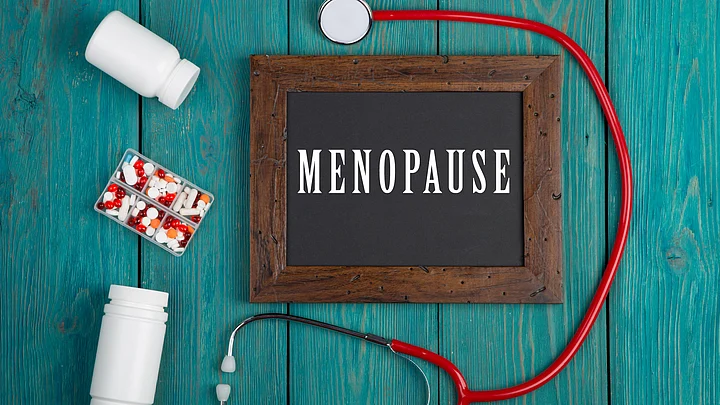Menopause is a condition when a person doesn't get a period for 12 months but even before the condition is confirmed, the person starts experiencing certain symptoms like hormonal changes, mood changes, hot flashes, etc. that are early symptoms of menopause. According to the US NIH, menopause may begin at the age of 40 to 58 years in developed countries. The symptoms related to menopause may start before menstruation ends, and they can last for several years. These symptoms may have an impact on the quality of life and overall health of a person.
Each person has a unique journey of menopause and they will experience menopause differently. Some may have full, active lives throughout the transition while some may struggle with it. Maintaining a healthy diet and regular exercise can help us feel better in the long term. Let's have a look at the early signs and symptoms of menopause.
What Are the 7 Early Signs Of Menopause?
As a female approaches menstruation, it slowly marks the end of her reproduction stage as well. This is because the estrogen levels start to fall which results in low chances of becoming pregnant.
One of the early signs of menopause approaching is usually periods occurring less regularly. They may become less frequent than usual and may become lighter as well.
One of the early signs of menopause also includes vaginal dryness, itching, and discomfort that begins from the phase of perimenopause and continues into menopause. A person with these symptoms may experience chafing and discomfort during sex.
Hot flashes are another common symptoms that occur around the time of menopause. During this, a person feels a sudden sensation of heat in the upper body like the face, neck, or chest, and progresses upward or downward. It may also cause sweating or red patches, night sweats, cold flashes, or chills.
Sleep problems are also a common problem that can arise during menopause, the reason being anxiety, night sweats, and frequent urination. One way to manage the problem is to get plenty of exercise, avoid heavy meals before bedtime, and do breathing exercises.
Emotional problems like depression, anxiety, and low mood are common during menopause. You may also experience irritability and crying spells. Hormonal changes and sleep disturbances may be the reasons contributing to depression during menopause. But most of the time, feelings of sadness, irritability, and tiredness are temporary.
A person approaching menopause may also experience various physical changes like buildup of fat around the abdomen, weight gain, changes in hair color, texture, and volume, breast reduction and tenderness, urinary incontinence, etc. It is not important that everyone might experience these symptoms.
(At The Quint, we question everything. Play an active role in shaping our journalism by becoming a member today.)
